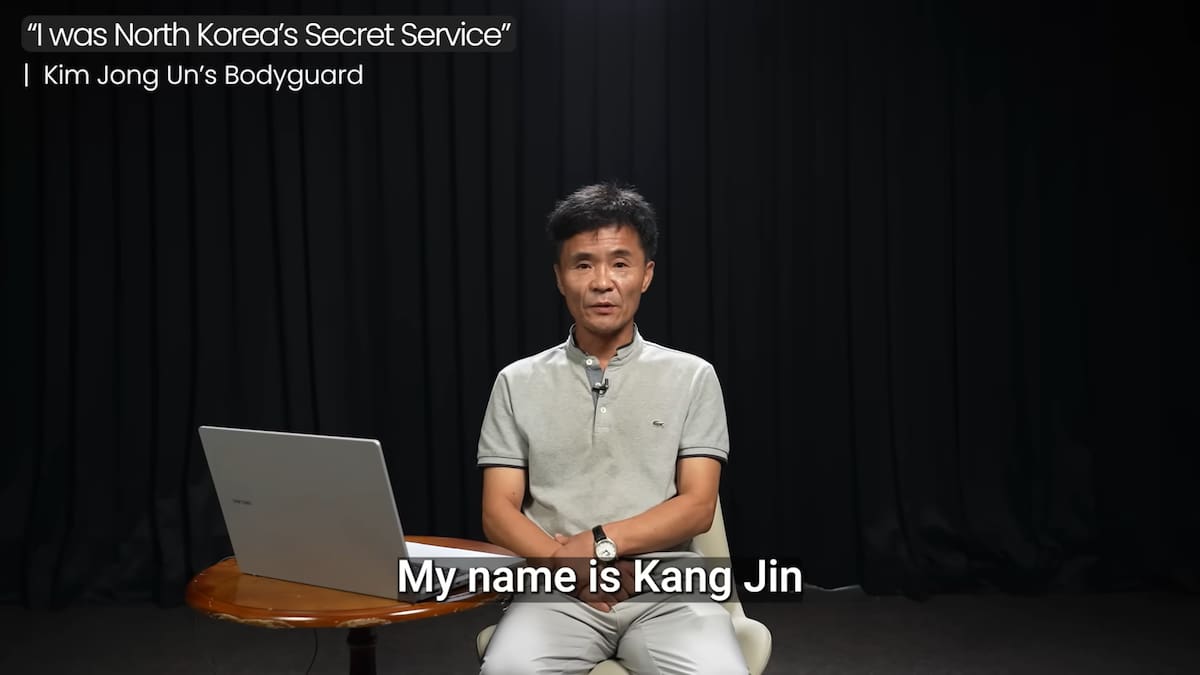“These places were not for the people,” he says. “They existed only for the Kim family. Even Kim Jong-il’s own sons couldn’t always enter. It was all about exclusivity, all about power.”
The compounds, known as teukgak, are dotted across the country’s most pristine landscapes. They are off-limits to ordinary North Koreans and are heavily guarded by troops who are recruited on the basis of their family background, looks and loyalty.
An aerial view of where the palace is situated, just short of the Chinese border. Photo / Google Earth
“Once you go in at 17, you cannot leave for 13 years,” Kang said. “We were told to live and die for the Supreme Leader. If he dies, we die.”
Kang says nights at the compounds often followed the same pattern. After dark, luxury cars would glide through the gates and by 8 or 10pm, a celebration of sorts would begin.
“Cars came in, music started, and the parties went until two or three in the morning,” he claims. “The most beautiful girls, 17 to 20 years old, were brought in. They weren’t even adults yet. They belonged to the pleasure squads. They danced, they sang, they entertained.”
Inside, tables were laid with the finest imported foods, alcohol and cigarettes.
“Everything was the best, the best meat, the best drinks, the best women,” Kang says. “Meanwhile, outside, people were starving to death.”
He claims guards like him were never invited inside.
“We stood watch. We could hear the music, but we never entered. Our role was to keep the secret. We were told even our lives belonged to him,” he continued.
Kang claims the bodyguard corps was just one cog in a wider system designed to choke off information and enforce loyalty.
“You were chosen based on three things: your family background, your appearance, and your loyalty,” he says. “If you lacked one, you were out.”
Those rules mirror the songbun system that classifies all 25 million North Koreans by their ancestry and loyalty to the regime. Radios and televisions are locked to state channels, foreign media is forbidden, and children are indoctrinated from the earliest age.
“We grew up believing the Kims were like gods,” Kang says. “You don’t question. You just obey.”
Kang even claimed he and his peers were given authority to shoot civilians on sight, should they stray too close to the compound.
“If someone appeared at the fence, we opened fire,” he says.
“That was how you earned reward. The rule was clear: only the dead keep secrets.”
When Kang demobilised from his post at 31, he says he found himself living in a country he barely recognised. The contrast between the excess he had guarded and the misery he witnessed outside the walls shocked him.
“I saw bodies on the street, families selling anything to survive,” he says. “I lost my wife to tuberculosis. I couldn’t even protect my family. Meanwhile the leader was feasting every night. That broke me.”
Beyond the luxury compounds and exclusive banquets, Kang described a completely different country, full of hunger and poverty. Photo / Getty Images
He says his faith in the regime collapsed quickly after seeing the full picture. He claims he was also denied career advancement because distant relatives of his were found to be traitors.
Faced with constant hunger, Kang says he realised he had no future.
“I gave 13 years of loyalty,” he says. “I got nothing back.”
He eventually realised there was only one way forward, however deadly. He claims he crossed the Amnok River into China in broad daylight for a shot at living life outside the totalitarian regime.
“It was winter. I thought I would die,” he says. “But I chose to risk death rather than keep living like that. I carried only a tiny bit of hope – and all my anger.”
Kang’s allegations join a long list of defectors’ stories that have claimed how North Korea’s ruling dynasty operates, relying on secrecy, propaganda, and punishment.
The nation’s modern history has been defined by the iron grip of three leaders, all from the same family.
It began with Kim Il-sung, who founded the state in 1948 and built the cult of personality. His son, Kim Jong-il, who deepened the police state. And then his son, Kim Jong Un, who now employs modern-day digital surveillance with nuclear expansion.
The system is pedantic in its controls – travel permits, workplace “criticism sessions”, surveillance units in every neighbourhood. Dissent, or even the hint of it, is systematically erased with the fear of putting even a toe out of line instilled from birth.
Kang, just like several other public defectors, understands that even now after escaping, speaking out puts him in danger.
Pyongyang is known to target defectors abroad, and families left behind often face brutal punishment.
But he says he must tell his story to show the world exactly how life is on the inside.
“I was brainwashed to believe he was a god,” he said.
“But what I saw was debauchery, cruelty, hunger. People should know. They should know the truth.”
Sign up to Herald Premium Editor’s Picks, delivered straight to your inbox every Friday. Editor-in-Chief Murray Kirkness picks the week’s best features, interviews and investigations. Sign up for Herald Premium here.

